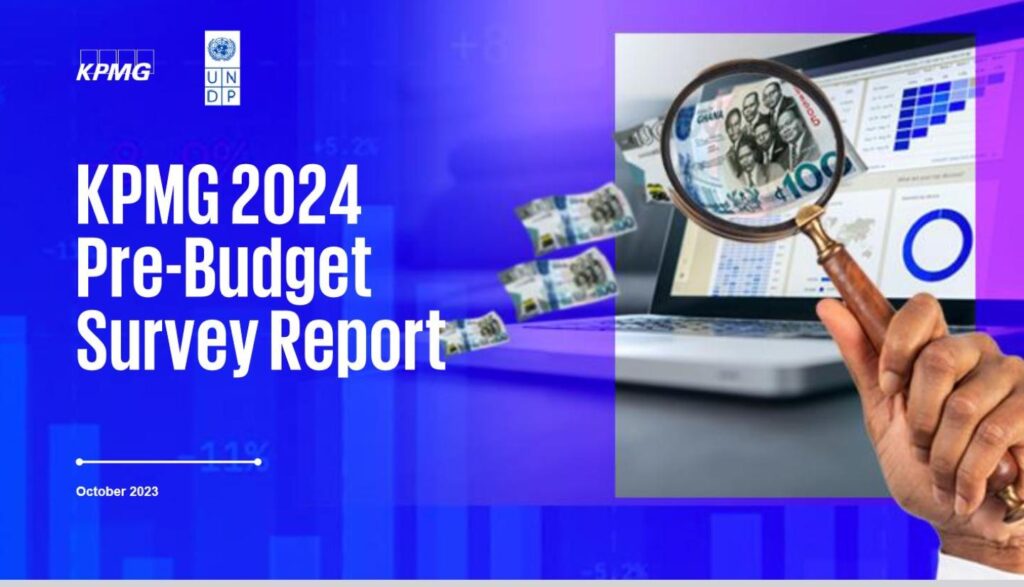KPMG Survey: Cybersecurity Ranks as the 2nd Biggest Threat to CEOs; Ghanaians Warned About Digital Banking Risks

Despite continuous efforts from industry players to mitigate cyber risks, cybersecurity remains a significant challenge within the banking sector. The 2024 KPMG Africa CEO Outlook has identified cybersecurity as the second-largest threat to Chief Executive Officers (CEOs) and their businesses, emphasizing the growing concern over digital security vulnerabilities.
This concern is echoed by the 2023 Bank of Ghana Fraud Report, which highlighted a staggering GH¢63 million in fraud-related losses—an alarming 21% increase compared to 2022. These findings underscore the mounting pressure on financial institutions to adopt stronger cyber defense mechanisms to protect both their operations and customers.
The importance of addressing the emotional and psychological impact of cyber threats on customers is becoming increasingly evident. According to the 2024 West Africa Banking Industry Customer Experience Survey by KPMG, banks must prioritize not only the technical aspects of cybersecurity but also the emotional toll these threats can have on their customers. It is essential to recognize that the fear and anxiety caused by cybercrime are as critical as the implementation of robust technological solutions. Customers who feel unsafe or vulnerable may hesitate to engage with digital platforms, undermining trust in financial institutions. Thus, building a sense of security and confidence among customers should be a central focus for banks navigating the digital age.
Ghanaians Express Caution About Fully Digital Banking
The growing adoption of digital banking channels reflects the sector’s drive for efficiency and convenience. However, the survey reveals that many Ghanaians remain cautious about embracing a completely digital banking model. While digital banking offers users the convenience of accessing services at any time and from anywhere, the lack of physical bank branches raises concerns among a significant portion of the population.
When survey respondents were asked if they would consider using a banking service that operates exclusively online with no physical branches, 23% expressed reluctance. This group of individuals expressed a lack of trust in fully digital banks, illustrating the continued importance of face-to-face interaction in establishing customer confidence.
The skepticism surrounding fully digital banking stems from several factors, chief among them being the perceived lack of personal touch. Many Ghanaians value the ability to walk into a physical bank and engage with a human representative, especially when facing complex financial situations or needing personalized assistance. The security of their personal and financial information is another major concern, with 62% of respondents indicating that protecting their data is a top priority. In an increasingly digital world, the protection of personal information remains paramount, as individuals worry about data breaches, fraud, and identity theft.
While digital banking presents many advantages—such as greater accessibility and reduced operational costs—there remains a gap in trust that banks must address. Customers who feel uncertain about the safety of their personal data or who have limited exposure to online banking are less likely to fully embrace digital-only banking models. Therefore, banks must work to ease these concerns by offering transparent communication about security protocols, providing customer support that can be easily accessed both online and offline, and ensuring that their digital services are intuitive and user-friendly.
To bridge this trust gap, banks might consider adopting a hybrid model. This approach would combine the benefits of fully digital banking with the reassurance provided by physical touchpoints. A hybrid model could include limited physical branches or customer service centers that offer personalized support for more complex banking needs. By maintaining a presence in key locations, banks can reassure customers that they are not entirely abandoning traditional services. This balance between digital innovation and customer trust could encourage more Ghanaians to gradually transition to digital platforms while still feeling secure and supported.
In conclusion, while digital banking continues to grow in Ghana, there is a clear need for financial institutions to recognize the importance of customer trust, security, and the desire for human interaction. By addressing these concerns and offering flexible banking solutions, banks can pave the way for broader adoption of fully digital services while maintaining customer loyalty and satisfaction.





